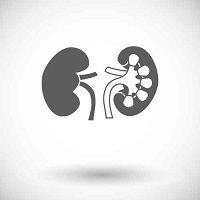Oxacillin Safer than Nafcillin, Study Finds
Even when staph bacteria are not drug resistant, clinicians face prescribing drugs that could cause an adverse reaction including kidney injury. A Pittsburgh team looked at the comparative risk of nafcillin vs. oxacillin.

Nafcillin and oxacillin are both recommended by consensus guidelines in treating methicillin-sensitive staph infections.
However, a team of researchers form the University of Pittsburgh recently found that there is a significant difference in the risks of hypokalemia and acute kidney injury when patients get one or the other of these two drugs.
Reporting at IDWeek 2015, in San Diego, CA, J. Alexander Viehman, MD, and colleagues found that patients receiving nafcillin (NAF) had higher rates of hypokalemia and acute kidney injury. The team looked at a cohort of 224 patients receiving either NAP of oxacillin (OXA) for at least 24 hours at a dose of 12 g/day.
Most (71%) had recieved NAF and 29% got OXA. The two groups had similar Charlson comorbidity scores and baseline serum creatine, and received similar regimens of concomitant medications.
Rates of hypokalemia were 51% in the group that got NAF but only 17% in patients who got OXA.
Adverse events forced the discontinuance of treatment in 18% of the groups receiving NAF but just 2% in the group that got OXA. Discontinuance was secondary to acute kidney injury in 50% of the patients, and was due to hypokalemia in 40% of the patients. After patients were switched to OXA 86% patients saw their hypokalemia resolve.
"We recommend OXA as the preferred anti-staphylococcal penicillin," the authors concluded, adding that prospective studies to validate their findings would be a good idea. The findings were reported in an abstract.